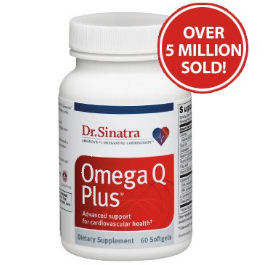|
It actually cleans the bad, or LDL, cholesterol, out of your blood vessels before they can turn into plaque, and give you coronary artery disease. Instead, the LDL gets dragged down to your liver, and then it´s sent out of the body.
If your HDL levels are below 40 mg/dL, you are at a higher risk of coronary artery disease, even if your other cholesterol levels are in the healthy range. If you can get your HDL level above 60, you may be working to prevent heart disease.
So how do we get our HDL levels up?
Here are some tips that you can incorporate into your daily routine:
- Go to happy hour. Stay away from the fried cheese, but do have a drink or two each day, unless you have other health factors that make alcohol an unhealthy choice for you. More than two drinks each day can lead to other health problems, but drinking alcohol in this range has been proven to drive your HDL levels up.
- Get plenty of oats. Vegetables, fruits and legumes help too. All of these contain soluble fiber, which will decrease your LDL levels and boost your HDL. Shoot for two servings each day.
- Cut out the smoking. Just stopping will automatically boost your HDL levels. Forget about the tar building up inside your lungs for a minute – just getting rid of the cigarettes will instantly help your heart.
- Hit the gym. All you have to do is boost your heart rate for twenty or thirty minutes a day. This could be through a brisk walk, bike ride, game of "Tag" with your kids, a swim, or a jog – or anything else active that you would consider fun. You don´t have to be on the treadmill for an hour a day to boost your HDL levels. According to recent studies, the length of time you spend exercising is more important than the intensity of the activity, when it comes to HDL stimulation.
- Drop the weight. Obesity has many risks for the body, but it also will boost your LDL levels and will drive down your HDL, both not good. This is particularly true if you carry your excess weight in your stomach area.
- Get rid of trans fatty acids. If your food is labeled with "hydrogenated vegetable oils," it has trans fatty acids. Many of the things we eat, including processed foods, have these oils in them. However, these acids will both boost LDL levels and reduce HDL levels, again not good.
- Ask your doctor about niacin. One of the B vitamins, niacin can help you increase your HDL levels. However, it takes so much that you generally have to have a prescription for "nicotinic acid" for this to work. There are side effects: hot flashes, skin-flushing and itching. Make sure to find out what your doctor thinks about this before starting a niacin regimen, though. Also, there are doctor-prescribed niacin tablets that are much more effective than over-the-counter (OTC) niacin pills in that they are slow-release and have reduced side-effects. Thus either you can have lower dose levels for the same effectiveness as OTC, or you can take higher doses with the same levels of side-effects as OTC – either way the prescribed tablets have advantages.
- Cut out the fat – but not all of it. An ideal level for your fat intake is between 25 and 35% of your total caloric intake. Combine that with removing saturated and trans fats from your daily diet, and you´re on your way.
Consult your doctor before starting a specific regimen. However, these tips are proven to help your body generate more HDL cholesterol and, in many cases, reduce the LDL levels. The sooner you get started, the better it will be for your heart!
Copyright © 2010 by Jack Osborne - All Rights Reserved |
|
|

From CoQ10:
- A strong, healthy heart
- Greater cellular, physical, and mental energy
- Superior antioxidant protection
- Normal homocysteine levels
- A healthy immune system
NEW Calamarine:
- Outstanding overall cardio support
- Healthy blood pressure and cholesterol levels
- Enhanced circulation
- Healthy blood vessels and arteries
- Support for healthy eyes
- Better brain function
- No aftertaste, no repeating
|

|
